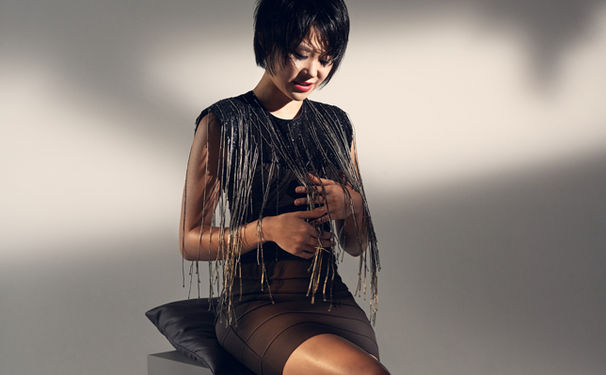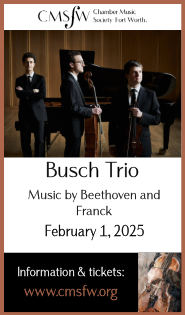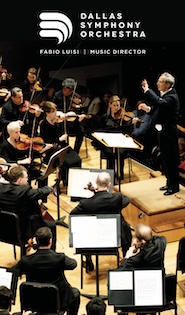Worlds collide harmoniously with Bartok and Brahms from van Zweden, Wang and DSO

Yuja Wang performed Bartok’s Piano Concerto No. 3 with Jaap van Zweden and the Dallas Symphony Orchestra Thursday night. Photo: Norbert Kniat
Apart from scheduling necessities, it’s hard to figure out exactly what underlying strategy led to placing Bartok’s Piano Concerto No. 3 next to Brahms’ Ein deutsches requiem on the concert by the Dallas Symphony Orchestra and music director Jaap van Zweden Thursday night at Myerson Symphony Center. Illogical as it may have looked on paper, the result was an immensely satisfying, rewardingly intense evening.
Soloist Yuja Wang, 29, indulged in extravagantly shaped phrasing in the opening passages of the Bartok before rolling into the lush, Lisztian second theme; although she played from the score, her performance was consistently convincing and authoritative throughout.
One can hardly help wondering why orchestras don’t perform this concerto more frequently. Bartok, nearing the end of his life, synthesizes his characteristic folk-based lyricism with his firm command of structure, orchestration, and virtuosic energy on a level equal to and surpassing many of the more often-performed piano concertos. Wang, van Zweden, and the orchestra were perfectly attuned to the marriage of tradition and modernism in this brilliant 1945 score.
Not surprisingly, the most breathtaking moment arrived in the serene Adagio religioso, with its echoes of Wagner and sonorous dialogue bewteen soloist and orchestra, giving way to an evocation of birdcalls and insect noises. Van Zweden and Wang caressed the sonic effects Bartok created here before bursting into the madcap joy of the finale.
In the Requiem, Brahms draws together a series of brief texts from throughout Luther’s German translation of the Bible, deliberately arranging them into a profound statement of reconciliation with the inevitability of death. Austerity of expression (for instance, in the absence of violins from the first of the seven movements) repeatedly gives way to opulent joyfulness in a hard-won journey from sorrow to serenity.
Van Zweden combined a sense of the overall sweep of Brahm’s concept with close attention to detail; each syllable of the vocal line was imbued with significance, as in the sobbing entry of the fugue in the first movement, or the hushed awe on the word“Geheimnis” (“mystery”) in the sixth movement.
Baritone soloist Matthias Goerne delivered both of his extended solo passages with intense, visually evident emotion to match the golden-hued beauty of his voice; soprano soloist Lisette Oropesa, managed the high range and long vocal lines of her appearance smoothly, beautifully expressing the metaphor of maternal comfort in the single movement in which she sings.
The 200-plus members of the Dallas Symphony Chorus filling the choral terrace behind the orchestra, continued that ensemble’s long tradition of producing tidal waves of glorious choral volume, but with complete precision and flexibility.
The program will be repeated 7:30 p.m. Saturday and 2:30 p.m. Sunday. mydso.com; 214-692-0203.


